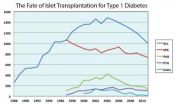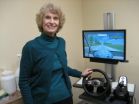(Press-News.org) When it comes to shopping for gifts, we try to select things we think people both want and need. According to a new study in the Journal of Consumer Research, focusing too much on the gift recipient can lead to giving the gift we were trying to avoid in the first place.
"We predict that in a gift-giving situation, both the gift givers and gift receivers will focus on the gift receivers when thinking about the gift. Givers will choose gifts that are more desirable over gifts that are more practical, whereas receivers will give greater weight to the gift's practicality," write authors Ernest Baskin (Yale University), Cheryl J. Wakslak (University of Southern California), Yaacov Trope (New York University), and Nathan Novemsky (Yale University).
In a series of eight classroom studies and an additional field study involving friends giving gifts to each other, the authors measured the tradeoffs between desirability and practicality in gift giver and gift receiver preferences.
Consider the gift giver who knows the gift receiver loves Italian food, but has to choose between a similarly priced restaurant gift certificate for a well-rated restaurant that is an hour away versus a medium-rated restaurant that is five minutes away.
The authors' research shows that the gift giver leans towards the fancier restaurant while the gift receiver would prefer to receive a gift certificate to the restaurant that is closer to their house. "We show that givers think fancier gifts will cause them to be more liked, will show they care more, and will make their friends happier, but receivers actually think practical gifts will cause this," the authors conclude.
Brands selling products that are often given as gifts can help consumers focus on how they would use a product, even if they are buying the product as a gift for someone else. In doing so, the practicality of the gift becomes apparent to the consumer.
INFORMATION:
Ernest Baskin, Cheryl J. Wakslak, Yaacov Trope, and Nathan Novemsky. "Why Feasibility Matters More to Gift Receivers than Givers: A Construal-Level Approach to Gift Giving." Journal of Consumer Research: June 2014. For more information, contact Ernest Baskin or visit http://ejcr.org/. END
Gift giving 101: When do 'perfect' gifts backfire?
2014-03-11
ELSE PRESS RELEASES FROM THIS DATE:
LSU research shows face matching for passports and IDs incredibly fallible
2014-03-11
BATON ROUGE – New research finds face matching, as when customs agents check passports, to be incredibly fallible, with error rates between 10 and 20 percent under ideal, laboratory-induced conditions, and much worse in more realistic settings.
"Because society relies on face perception and ID verification for many tasks, people are often under the impression that we are experts in this domain," said LSU Assistant Professor of Psychology Megan Papesh. "Our research shows the precise opposite."
In a recent article published in Attention, Perception, and Psychophysics, ...
Poison Centers benefit patients, reduce medical costs, study finds
2014-03-11
Patients who received help from a poison center had shorter hospital stays and lower hospital charges among those who are the most expensive to treat, according to a study led by researchers at the University of Illinois at Chicago School of Public Health.
Poison centers provide 24-hour assistance year round to the public and to medical professionals. While studies show that poison centers reduce system-wide costs, their impact on patient outcomes at the hospital level has not been clear, the study's authors report.
The researchers conducted a retrospective analysis ...
New organ transplant strategy aims to better prevent rejection
2014-03-11
Organ-transplant recipients often reject donated organs, but a new, two-pronged strategy developed by UC San Francisco researchers to specifically weaken immune responses that target transplanted tissue has shown promise in controlled experiments on mice.
The hope is that using this novel treatment strategy at the time of transplantation surgery could spare patients from lifelong immunosuppressive treatments and their side effects. The approach might also be used to treat autoimmune diseases such as type 1 diabetes, the researchers said. The study is published and commented ...
Bending the light with a tiny chip
2014-03-11
Imagine that you are in a meeting with coworkers or at a gathering of friends. You pull out your cell phone to show a presentation or a video on YouTube. But you don't use the tiny screen; your phone projects a bright, clear image onto a wall or a big screen. Such a technology may be on its way, thanks to a new light-bending silicon chip developed by researchers at Caltech.
The chip was developed by Ali Hajimiri, Thomas G. Myers Professor of Electrical Engineering, and researchers in his laboratory. The results were presented at the Optical Fiber Communication (OFC) conference ...
Detecting, testing, treating rare diseases: Technology delivers new era of personalization
2014-03-11
LOS ANGELES (March 10, 2014) – A team of researchers from the National Institutes of Health, Emory University and Cedars-Sinai – specialists in identifying and treating very rare diseases – used three innovative tools to detect a previously unknown gene mutation, test potential therapies in the lab, and initiate personalized drug treatment for a boy with a lifelong history of uncontrollable seizures that caused significant impact on his cognitive and social development.
"This personalized medical approach exemplifies the power of current research tools and shows the immense ...
Study using driving simulator determines when it's safe to drive after hip replacement
2014-03-11
After hip replacement surgery, many patients are anxious to resume driving, and a new study challenges the conventional wisdom that patients should wait six weeks before getting back behind the wheel. Dr. Geoffrey Westrich, director of research, Adult Reconstruction and Joint Replacement at Hospital for Special Surgery in New York City, found that patients in the study were able to return to driving four weeks after total hip replacement.
The study, titled, "A Novel Assessment of Driving Reaction Time Following THR Using a New Fully Interactive Driving Simulator," will ...
New MRI can 'see through' metal screws to follow patients after hip fracture surgery
2014-03-11
People who sustain the most common type of hip fracture, known as a femoral neck fracture, are at increased risk of complications. A special type of MRI developed at Hospital for Special Surgery in collaboration with GE Healthcare can show a detailed image following fracture repair, without the distortion caused by metal surgical screws that are problematic in standard MRIs.
Each year, more than 340,000 people suffer a broken hip in the United States. The femoral neck, the area just below the ball of the hip's ball-and-socket joint, is the most common site of fracture, ...
Study: Women report more pain than men after knee replacement surgery
2014-03-11
Middle-aged women with rheumatoid arthritis or arthritis resulting from an injury are among the patients most likely to experience serious pain following a knee replacement, researchers from Hospital for Special Surgery (HSS) in New York have found.
One of the biggest concerns patients have is the amount of pain they will have after knee replacement surgery. Although it is a very successful operation overall to relieve arthritis pain and restore function, persistent postoperative pain can be a problem for some patients. Researchers at HSS set out to determine which groups ...
Personality may be key risk factor in preventive health care
2014-03-11
WASHINGTON – When it comes to helping young adults avoid serious health problems later in life, assessing their personalities during routine medical exams could prove as useful as recording their family medical histories and smoking habits, according to new research published by the American Psychological Association.
"Health care reform provides a great opportunity for preventive care, with physicians seeing more young adults who may not previously have had insurance," said lead author Salomon Israel, PhD, of Duke University and Duke University Medical Center. "Our research ...
UGA researchers identify decision-making center of brain
2014-03-11
Athens, Ga. – Although choosing to do something because the perceived benefit outweighs the financial cost is something people do daily, little is known about what happens in the brain when a person makes these kinds of decisions. Studying how these cost-benefit decisions are made when choosing to consume alcohol, University of Georgia associate professor of psychology James MacKillop identified distinct profiles of brain activity that are present when making these decisions.
"We were interested in understanding how the brain makes decisions about drinking alcohol. Particularly, ...

